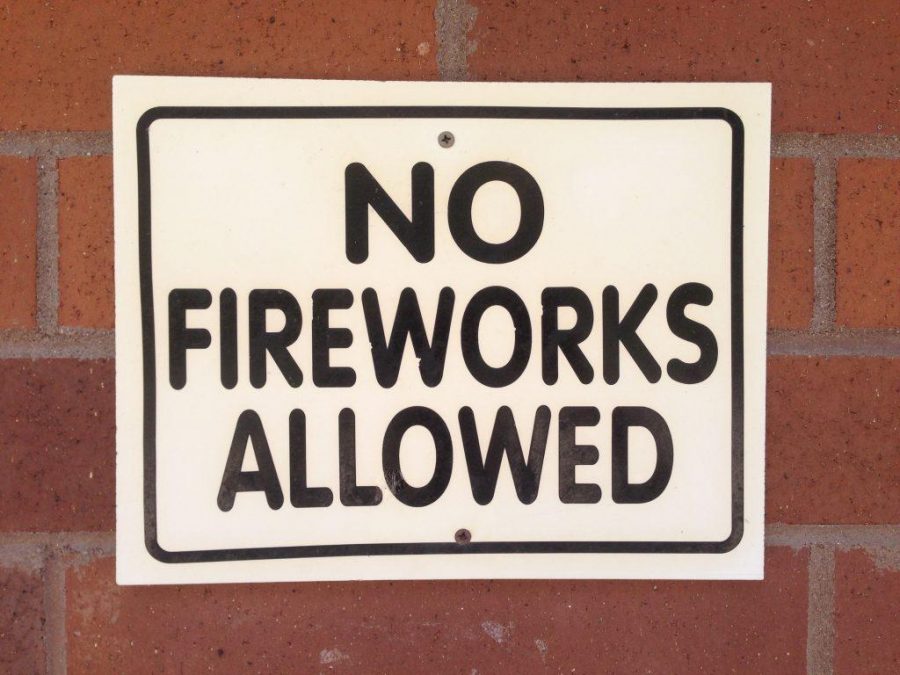I’m sure you’ve seen fireworks in the news. It seems that every year, Utah’s legislature and city councils are changing the rules and reconsidering their impacts. In 2011 they started allowing cake fireworks, then in 2012 put curfews on them due to a “1,537 percent increase in disturbance calls due to fireworks”. There were talks of extending the dates you could light them throughout July, but we’re still only allowed to launch them within 3 days of Independence and Pioneer Day. Why do we continue to add and amend restrictions? Why does this issue seem so controversial?
A few months ago, RawStory did a piece collecting research on how fireworks affect our environment. The biggest problem is that they leave metal particles in the air – the residue of burning potassium, aluminum, perchlorates and other chemicals. In a city where people are constantly complaining about smog and bad air quality, nobody seems to care about the huge smoke clouds that cover the valley after Pioneer Day.
There are also bigger environmental problems, namely the number of fires caused by fireworks. It’s been difficult to find concrete numbers, but it seems that in 2014 there were eight fires in Springville alone and 17 more in Salt Lake City, and that’s only on the night of the fourth. There tends to be only one to five massive wildfires every year, but that’s still a large amount of damage to environment and property in Utah.
On top of health and environmental problems, there are also interesting economic facts surrounding fireworks. The U.S. imports about 15 times the value of fireworks as it exports. There seems to be little evidence that fireworks really affect our economy positively at all. Yet, there is plenty of evidence surrounding how the fireworks industry was affected by our recent recession. While governments and organizations were obviously cutting fireworks displays in favor of budgets, consumer purchases of fireworks barely changed at all. That means that even in the face of economic disaster, people felt the need to continue buying these expensive novelties. On top of that, there are some patterns of firework sales in Utah to suggest that their most popular audience is low-income areas.
The biggest argument against fireworks; its a huge waste of money. People are willing to spend $60 to get a box of explosives for maybe an hour of entertainment. Often these seem to be the same people that complain about paying $60 for a video game that could last 40 hours, or paying $12 for a three hour movie. Fireworks entertainment may be celebratory, novel and romantic in ways that a movie probably won’t be. But at the end of the day, you’re still paying $60 for an hour of watching colored lights and loud pops.
Let’s say at the end of the day you don’t care about the faint possibility of causing a fire or spending a bunch of money to make something blow up. Could you at least consider the other people you’re affecting with your explosions? The neighbor next door who has to be at work at 7 a.m. on July 5 and doesn’t appreciate not being able to sleep until the last fireworks stop well after the midnight curfew? Or anyone in the area sitting in their house trying to combat varying degrees of veteran PTSD? What about those trying to comfort their confused and scared pets?
I’m not claiming that fireworks are all bad. I argue that the bad things about them far outweigh the good things. I think they cause a lot of negative effects and we as a society need to grow up and move past them. Find a better, more fun and more fulfilling way to celebrate July holidays. Spend some of that fireworks money on something to send to our troops or find a local organization that helps immigrants attain citizenship. You know, because freedom.
@JaromNorris


